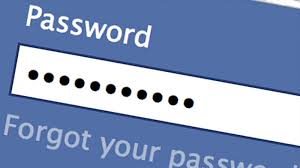If you see your password on this list, change it as soon as possible
Everyone should on high alert when visiting a new website, opening an email, or even clicking a link in a text message — but all of these dire threats have still yet to stop us from coming up with the worst passwords imaginable to protect our most important online accounts.
This week, password manager NordPass published its list of the 200 most common passwords of 2020, and if you thought that we might have made progress as a society in recent years when it comes to making passwords, you can disabuse yourself of those optimistic notions. Of the 200 most popular passwords this year, a board majority could be cracked by a bad actor in less than a second. If you currently use any of the passwords on the NordPass list that fall into this category, you are constantly an instant away from having your data stolen.
You can visit NordPass’s website to see the entire list of passwords — which includes interesting data points like how many people are using the password, how much time the password would take to crack, and how many times each of the passwords were exposed — but here are the 25 most common passwords of 2020:
123456
123456789
picture1
password
12345678
111111
123123
12345
1234567890
senha
1234567
qwerty
abc123
Million2
000000
1234
iloveyou
aaron431
password1
qqww1122
123
omgpop
123321
654321
qwertyuiop
I think my favorite revelation from the list is that “12345” has dropped from the top spot to #8, while “123456” has taken its place at #1. Basically, over the course of the last year, the most progress we’ve made is adding one extra number to the stupidest possible password, making it approximately 0% more secure.
Of course, the point of making this list wasn’t just to put people who use these passwords on blast. NordPass also offered up a list of useful tips for creating stronger passwords, like avoiding dictionary words, repetitive or sequential characters, and any personal details. The best passwords are at least 12 characters long, utilize a mix of upper- and lower-case letters, numbers, and symbols, and are never used across multiple accounts.
Use a password generator to generate strong strings, keep track of them all with a password manager, and change your passwords more than once a year. These aren’t the most fun rules to live by, but if you want to ensure that all of your online data and accounts are secure, they’re important to make part of your life.




Comments
Post a Comment